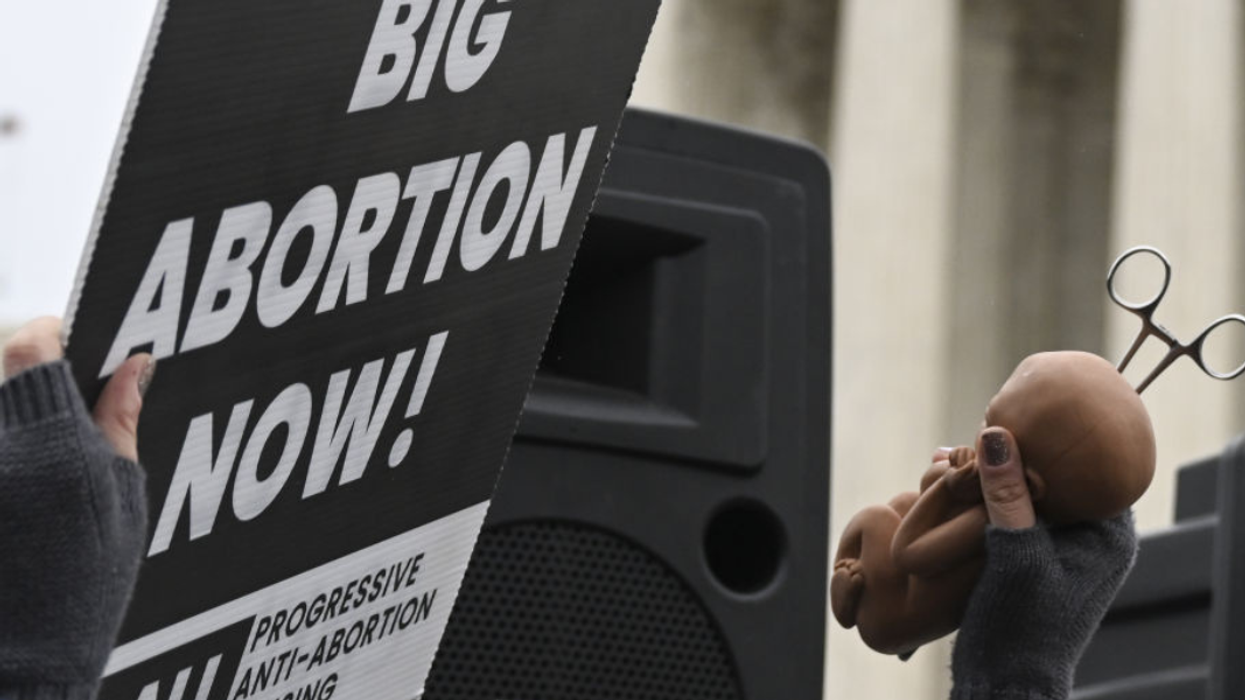Burke is a PhD candidate in political science at the University of California, Irvine. She is currently producing a dissertation on the effect of reproductive justice on intrastate peace, stressing the importance of equitable abortion access and women's political representation for cultivating peaceful societies. She is also a member of the Scholars Strategy Network.
One year after the fall of Roe, the United States has seen a tragic amount of preventable harm—maternal mortality rates have increased exponentially—mirroring patterns seen in countries like El Salvador and Nicaragua. These harms were unfortunately predictable. What is perhaps unexpected is the upsurge in diverse forms of violence after Roe 's repeal, including murder and arson. It is imperative for policymakers to closely monitor this unique strain of civil unrest stemming from abortion bans in conservative states.
According to the Institute of Economics and Peace (IEP), the United States has seen a deterioration in overall peacefulness since 2015. According to their 2023 report, civil unrest continues to be the primary driver of this deterioration. Essentially, political terror and political instability are leading Americans to feel less “safe and secure.” I posit that abortion bans exacerbate this terror and instability by emboldening clinic attacks, murder, protests, and counter protests.
Erosion of a Sense of Safety
In May of 2023, The National Abortion Federation released their annual report on violence against abortion providers. The report found that post- Roe, the number of death threats, burglaries, and arson attacks against abortion clinics in the United States increased significantly. Extreme right-wing ideologies (see the Army of God Manual) call for “justifiable homicide” of abortion providers. This political terrorism subsequently produces fear of seeking and performing medical care.
To make matters worse, the threat of violence extends beyond clinics. Also in May of 2023, a 26-year-old Texas woman named Gabriella Gonzalez was shot and killed by her boyfriend after she traveled to Colorado for an abortion. This striking murder highlights yet another danger posed by abortion bans. Experts fear that individuals who become pregnant in abusive relationships will become inextricably tied to their abusers or—in this case—face fatal violence when they cannot access abortion quickly and discreetly. Like clinic attacks, increased fear of domestic abuse creates an environment of insecurity and fear in the wake of abortion bans.
In addition to these forms of political violence, political demonstrations may deteriorate feelings of safety and security. In the two months following the Court ruling, there were over 3,000 protests by actors on both sides of the issue. While the majority of protests were peaceful, at least 45 protests included unlawful militia creating an environment of hostility and potential violence.
Implications of Civil Unrest
It is clear that abortion bans can fuel clinic attacks, domestic violence, and demonstrations, leading to less sense of safety and more civil unrest. While other factors influence peacefulness as well (e.g. wealth, political system, amount of violent crime), these post- Roe spikes in violence are concerning in that they could be precedents to real civil conflict. Scholars know that the treatment of women predicts peacefulness in society. This means that as women face more violence and instability, there is a real chance that the country will become more prone to violence.
Moreover, these trends should concern policymakers as they could soon get worse. The fall of Roe v. Wade was one catalyst for civil unrest, but additional proposed legislation from GOP leaders threaten to exacerbate the situation yet further. These include attempts to outlaw Mifepristone (Plan B), contraception, and possibly even no-fault divorce. According to gender scholars, these things are mainstays of gender equality.
Considering the data, instances of violence, and that 50% of Americans fear impending civil war, U.S. policymakers should be concerned with maintaining safety and security while preventing civil unrest. One answer is codifying the right to abortion, making it accessible, and preventing further harm, thus reducing instances of clinic attacks, domestic violence, protests, and counter protests.
Policy Recommendations for State Legislators
Permitting Abortion
1. Build abortion protections into new statutes or constitutional amendments and repeal any medically unnecessary restrictions and bans on abortion.
Making Abortion Accessible
2. Repeal or replace laws requiring that only physicians can perform abortions to allow advanced practice clinicians (APCs) to do so as well.
3. Require private insurance plans to cover abortion care and provide funding through state Medicaid programs.
4. Repeal any parental notification or consent laws.
Preventing Harm
5. Enforce “Medical Safety Zones” to protect clinics.
6. Vote against any attempts to restrict Mifepristone, contraception, and/or no-fault divorce.
Addressing the consequences of the erosion of the right to abortion requires a comprehensive approach that not only guarantees access to reproductive health, but also prioritizes abortion seekers and providers’ security. By enacting the recommended policy measures, state legislators can help ensure that the United States remains a safe and secure environment for all, regardless of their reproductive choices.
This writing was originally published through the Scholars Strategy Network.



















Trump & Hegseth gave Mark Kelly a huge 2028 gift